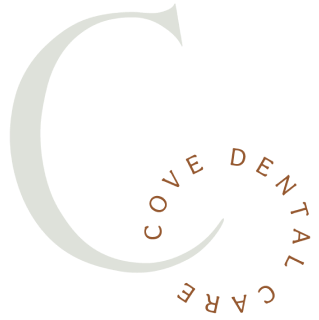105 Sheringham Dr Easley, SC 29642

Tooth Extractions in Easley, SC
Patients may necessitate tooth extraction to address severe infections, overcrowding, damage, or impaction. This procedure effectively alleviates pain and enhances the overall health and function of teeth and gums. As a preventive dental care measure, tooth extractions halt the spread of infection or damage throughout the dental structure and neighboring teeth. Dr. Adam Carraway offers tooth extraction services in Easley, SC. Some patients may express concerns regarding potential discomfort during and after the procedure. However, Dr. Carraway prioritizes patient comfort throughout the treatment process.
Tooth extraction involves the removal of a tooth from its socket and can be performed by a skilled and experienced surgeon, periodontist, or general dentist.
When Should I Consider a Tooth Extraction?
We view tooth extractions as a final recourse in addressing dental health concerns. Your local dentist will guide you through the rationale behind the need for tooth extraction and what to anticipate. In dentition, there are two sets of teeth: primary teeth, which naturally shed as a child grows, and permanent teeth, which replace the primary set.
Although permanent teeth are intended to last a lifetime, various factors may necessitate extraction, including overcrowding, irreparable damage, impacted teeth, periodontal disease or gum infections, or accidental trauma.
Prior to recommending a tooth extraction, your dentist will conduct a comprehensive examination of the affected tooth, mouth, and gums to ensure your suitability for the procedure.
Tooth Extraction Process
Your dentist may recommend two types of tooth extraction procedures: simple and surgical extractions. Simple extractions, typically conducted under local anesthesia, are primarily performed on visible teeth.
Conversely, surgical extractions may be more complex. This option is considered when the tooth is difficult to access, often due to impaction or breakage. During a surgical extraction, the dentist may need to make an incision to access the impacted tooth beneath the gumline. Additionally, they may need to extract the tooth in multiple pieces.
When is a Tooth Extraction Necessary?
Can I Be Put to Sleep for My Extraction?
For certain tooth extraction cases, your dentist may direct you to a specialist, such as an oral surgeon, who provides various sedation alternatives. Dental sedation ensures a pain-free experience, eliminating any discomfort or pulling sensation. Your vital signs will be closely monitored by the dental care team to guarantee your safety throughout the procedure.
In situations where there's a risk of complications, your oral surgeon may suggest performing the procedure in a controlled setting to ensure immediate access to emergency care if needed.
What Can I Expect Before and After the Procedure?
For tooth extractions, your dentist may administer local anesthesia to numb the area, effectively preventing sharp pain during the procedure. If local anesthesia is employed, you may still feel some pulling sensation as the dentist removes the tooth.
Following the extraction, minor bleeding is common, and your dentist will place gauze over the socket to absorb any blood. Additionally, they will provide instructions on socket care to minimize infection risk and expedite the healing process.
What Is a Dry Socket and I can I Prevent It?
Following a tooth extraction, the formation of a blood clot at the extraction site is a normal part of the healing process. This clot serves to protect and facilitate the healing of the nerve endings and underlying bone. It's crucial for the clot to remain intact until the healing is complete. However, there are instances where the clot may become dislodged, resulting in a painful condition known as dry socket. To prevent the occurrence of dry socket, you should:
- Refrain from using a straw
- Avoid smoking or using tobacco products
- Maintain diligent oral hygiene practices
What Can I Eat After a Tooth Extraction?
During the initial 24-hour period following an extraction, it's crucial to consume only soft foods and certain liquids. Consider including the following easy-to-chew options:
- Scrambled eggs
- Applesauce
- Cottage cheese
- Yogurt
- Mashed potatoes
- Oatmeal
- Ice cream
The Importance of Tooth Extractions
Tooth extractions serve as a fundamental dental procedure with significant implications for oral health and overall wellness. Despite the initial apprehension surrounding the process, the benefits of tooth extractions extend far beyond immediate discomfort relief, addressing diverse dental issues and averting potential complications.
Primarily, tooth extractions are instrumental in alleviating the pain and discomfort associated with severely decayed or damaged teeth. These problematic teeth can cause persistent discomfort, hindering eating, speaking, and overall quality of life. By extracting the affected tooth, individuals find relief from pain and discomfort, enabling them to regain normal oral function and enhance their overall well-being.
Additionally, tooth extractions play a pivotal role in halting the spread of infection. When a tooth becomes severely infected or abscessed, it poses a considerable risk to surrounding teeth and tissues. By removing the infected tooth, the source of infection is eliminated, preventing its transmission to neighboring teeth and mitigating the risk of complications that could affect the entire oral cavity or even systemic health.
Moreover, tooth extractions are often necessary in cases of overcrowding or misalignment. Orthodontic treatments, like braces, may necessitate the removal of certain teeth to create adequate space for proper alignment. Extracting teeth in these scenarios not only enhances the effectiveness of orthodontic treatment but also fosters a more balanced and functional bite, reducing the likelihood of future dental issues.
In certain instances, wisdom teeth extractions are recommended as a preventive measure. Wisdom teeth, or third molars, frequently emerge with insufficient jaw space, leading to impaction, misalignment, and heightened susceptibility to decay and gum disease. Extracting wisdom teeth preemptively helps forestall pain, infection, and the need for more extensive interventions in the future.
Lastly, tooth extractions play a critical role in preparing for restorative procedures such as dental implants or dentures. When a tooth is too damaged or compromised for effective restoration, extraction lays the groundwork for more successful and enduring replacement options. This strategic approach ensures that patients can ultimately regain full oral function, aesthetics, and confidence.
In summary, tooth extractions are indispensable in promoting oral health and overall well-being. Beyond pain relief and infection prevention, they contribute to proper alignment, facilitate restorative treatments, and stave off future complications. While the notion of a tooth extraction may evoke initial concerns, recognizing the broader advantages of this procedure underscores its indispensable role in preserving and enhancing oral health and quality of life.

